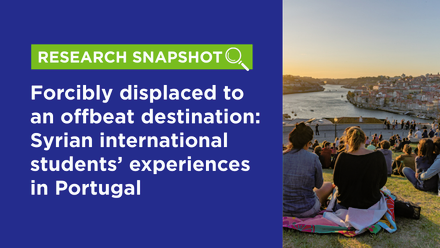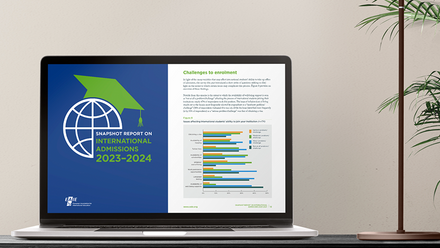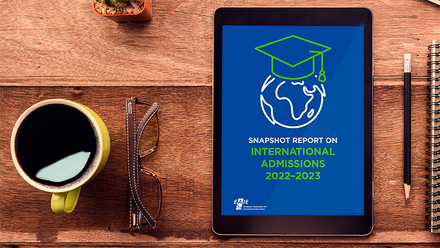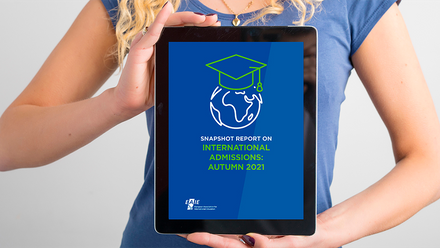Recognising qualifications across the globe: updates from UNESCO

In order to reduce obstacles for the growing number of internationally mobile students, we as higher education professionals have to make sure they receive full and fair recognition of their prior qualifications. The UNESCO Global Convention on Recognition of Qualifications Concerning Higher Education aims to streamline and standardise the evaluation and acceptance of academic credentials worldwide. This blogpost explores the importance of such a Convention for university admissions, outlining the key benefits and implications it brings to the global education landscape.
The Global Convention was adopted at the 40th session of the UNESCO General Conference in November 2019. It is the first legally binding United Nations treaty on higher education, officially in force since 5 March 2023, following the 20th ratification, by Australia on 5 December 2022. Nineteen other countries such as the UK, Japan and France had already ratified it previously, and at least 20 more countries are currently in the process of doing so. Now that the Convention is in force, its implementation will be shaped by a series of meetings of the Intergovernmental Conference of the States Parties, composed of representatives of all States Parties to the Convention. The first such meeting took place from 4 to 5 July 2023 at UNESCO Headquarters in Paris.
The importance of global recognition
The Global Convention is primarily an agreement between the governments of the countries which choose to adopt it. However, a number of stakeholder organisations, including the EAIE, are recognised as official Observers in this process. As the largest Association of professionals in international higher education in Europe, the EAIE is well placed to provide input from the practitioners’ point of view. In my role as Chair of the EAIE Expert Community Admission and Recognition, I represented the EAIE at this meeting, as I did in 2018 when the final draft was prepared.
The Convention aims to focus on competencies achieved rather than merely matching course titles
The most important principle in the Global Convention is that "Individuals have the right to have their qualifications assessed for the purpose of applying for admission to higher education studies or seeking employment opportunities" and that "recognition of qualifications should be transparent, fair, timely and non-discriminatory in accordance with the rules and regulations of each State Party, and should be affordable". In order to guarantee this, the States commit to providing the necessary information and setting up the adequate structures, according to common standards and procedures, as well as giving facilities for situations where the necessary supporting documents can’t be provided (eg refugees). Following from these same principles, the following are some of the most important aims of the Convention:
• Facilitating student mobility: As more and more countries ratify it, the Convention will allow students to seamlessly transfer credits and qualifications earned in one country to another.
• Enhancing employability: Graduates with internationally recognised qualifications are perceived as more competent and competitive in the job market, transcending geographical limitations and attracting employers from various countries.
• Fostering collaboration among institutions: The Convention encourages partnerships, joint research projects, and student exchanges, leading to the sharing of knowledge, expertise, and resources for the betterment of education as a whole.
• Supporting quality assurance: By endorsing a set of universally accepted standards for evaluating qualifications, the Convention supports a global framework for quality assurance in higher education. It ensures that accredited institutions meet certain benchmarks and that graduates possess the required skills and knowledge irrespective of their country of origin.
• Promoting inclusivity and diversity: Embracing a standardised recognition system promotes inclusivity by giving equal opportunities to students from different educational backgrounds as well as displaced students. It lessens the potential for discrimination based on nationality and encourages institutions to appreciate the value of diverse academic experiences.
The Convention itself is only the starting point and the first basis for achieving these aims at a global scale; the real work of developing common standards, transparent information, unified structures and procedures is only just beginning. In each country ratifying the Convention, there is a great need for the government and the whole higher education sector to work together on developing the right solutions for maximum impact in our daily practice. Our international network of higher education professionals can be a great asset for this.
Challenges and solutions
While the Global Convention on Recognition of Qualifications Concerning Higher Education presents numerous advantages, implementing such a Convention does come with challenges. Those challenges include:
• Disparities in education systems: Countries have diverse education systems with very different curricula and assessment systems, often making direct comparisons difficult. To overcome this challenge, the Convention aims to focus on competencies achieved rather than merely matching course titles.
• Political and bureaucratic hurdles: Convincing all nations to agree on a standardised framework will mean overcoming political and bureaucratic hurdles. Fostering dialogue and emphasising the shared benefits are essential in helping to overcome resistance and build consensus.
• Verification and accreditation: Ensuring the authenticity of qualifications and accreditation from different institutions worldwide requires an efficient verification system. New technologies, such as digital verification and blockchain-based credentials, will be essential elements for this. Even more importantly, the international community of admission and recognition professionals should support and empower each other in acquiring the necessary up-to-date expertise. The EAIE can be an essential platform in this respect.
The Global Convention on Recognition of Qualifications Concerning Higher Education carries huge potential for university admissions. As the world becomes more interconnected and global mobility increases, having a standardised framework for recognising academic qualifications is critical for the advancement of international higher education. This Convention strives for seamless student mobility, enhances employability prospects, encourages academic collaboration, ensures quality education, and fosters diversity and inclusivity.
By addressing the challenges in its implementation proactively, the international community can pave the way for a more equitable and interconnected global education landscape. For us, practitioners in international higher education, it is essential to address the issues with our governments and relevant official entities, to stress the importance of the Global Convention and to push for ratification where this is not already in progress.






